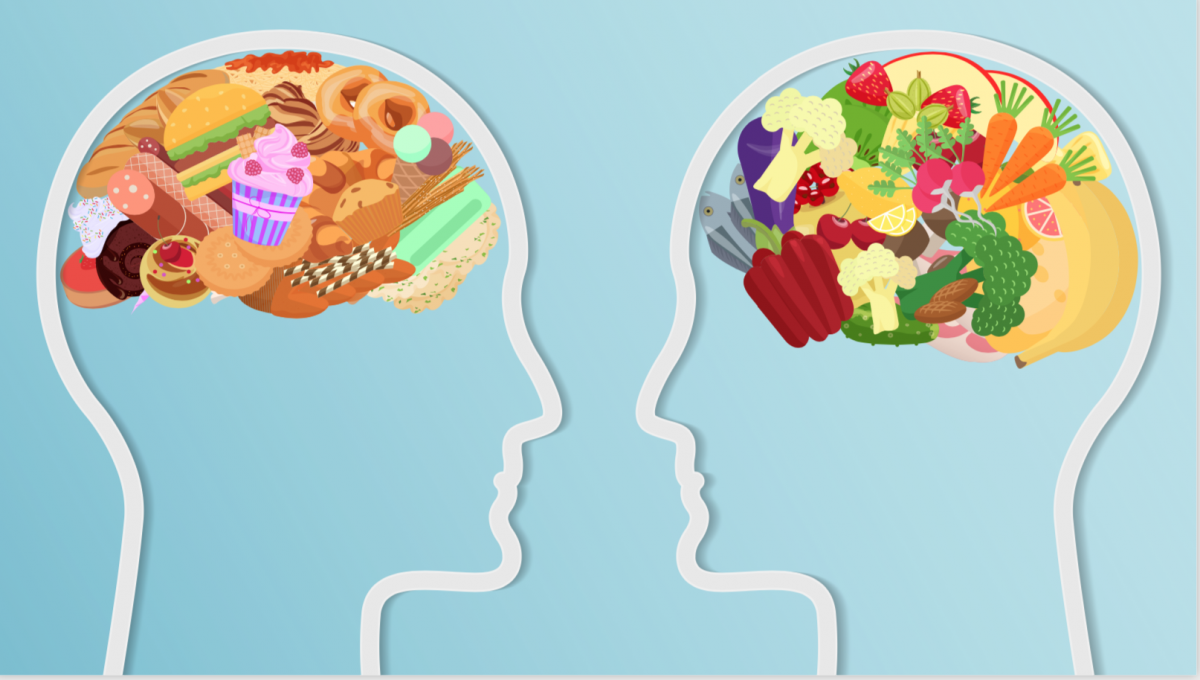Our relationship with food is complex, extending beyond the simple act of nourishment. The psychology of eating delves into the intricate interplay between our minds and the food we consume, shaping our habits, emotions, and overall well-being. In this exploration, we'll unravel the fascinating aspects of the psychology of eating, understanding how our thoughts and feelings influence our food choices and, in turn, impact our health.
- Emotional
Eating:
One of the key aspects of the psychology of eating is the
strong connection between our emotions and our food choices. Many of us have
experienced turning to comfort foods during times of stress, sadness, or
celebration. Understanding the triggers for emotional eating and developing
healthier coping mechanisms is crucial for maintaining a balanced relationship
with food.
- Awareness
and Identification: Acknowledge emotional triggers and recognize the
connection between mood and food. Keeping a food diary can help identify
patterns and understand the emotions driving certain eating habits.
- Alternative
Coping Mechanisms: Develop healthier ways to cope with emotions, such
as exercise, meditation, or engaging in hobbies. Building a toolkit of
alternative coping mechanisms reduces reliance on food as the primary
source of emotional comfort.
- Mindful
Eating:
In contrast to the autopilot mode that often characterizes
our meals, mindful eating encourages a conscious and present approach to food.
This involves paying full attention to the sensory experience of eating,
savoring each bite, and acknowledging feelings of hunger and fullness. By
practicing mindfulness, we can foster a healthier relationship with food and
cultivate a deeper appreciation for the nourishment it provides.
- Conscious
Consumption: Practice mindful eating by slowing down, savoring each
bite, and engaging your senses. By focusing on the present moment, you can
develop a deeper appreciation for the flavors and textures of your food.
- Gratitude
Practices: Express gratitude for the nourishment your food provides.
Cultivating a sense of gratitude transforms eating into a positive and
intentional experience, promoting a healthier mindset towards food.
- Cultural
Influences:
Our cultural background significantly shapes our food
preferences and attitudes towards eating. Exploring the cultural psychology of
food allows us to understand why certain foods hold symbolic significance, how
traditions impact our dietary choices, and how cultural diversity enriches our
culinary experiences.
- Exploration
and Celebration: Embrace the diversity of culinary traditions.
Experiment with recipes from various cultures, attend cultural events, and
celebrate the rich tapestry of flavors that different cuisines offer.
- Personalization:
While appreciating cultural influences, personalize your diet to align
with your individual health needs. Adopting a balanced approach allows you
to integrate cultural practices while making informed choices.
- Body
Image and Self-Perception:
The media's portrayal of beauty standards and societal
expectations often play a significant role in shaping our body image. The
psychology of eating explores how our self-perception can influence our dietary
habits, leading to both healthy and unhealthy relationships with food.
Cultivating a positive body image is essential for fostering a balanced and
nourishing approach to eating.
- Media
Literacy: Develop media literacy to critically evaluate beauty
standards. Challenge unrealistic portrayals and celebrate diverse body
shapes and sizes. Unfollow social media accounts that promote unhealthy
body ideals.
- Self-Compassion
Practices: Cultivate self-compassion by acknowledging and appreciating
your body for its strength and resilience. Focus on positive affirmations
and surround yourself with supportive influences that encourage a healthy
body image.
- Food
as a Reward and Punishment:
For many, food serves as both a reward and a punishment.
Understanding the psychology behind using food in this way can reveal insights
into our relationship with self-discipline, self-control, and the emotional
associations we attach to specific foods. Developing alternative reward systems
and reframing our mindset around food can contribute to a healthier approach to
eating.
- Reframing
Rewards: Shift from using food as the primary reward. Instead,
establish non-food-related rewards for achievements, creating a positive
reinforcement system that doesn't compromise your relationship with food.
- Mindful
Indulgences: Allow yourself occasional indulgences without guilt. By
savoring these treats mindfully and in moderation, you can break the cycle
of associating food solely with reward or punishment.
- Cravings
and Deprivation:
The psychology of cravings and deprivation is a delicate
balance. Denying ourselves certain foods may lead to intensified cravings,
while allowing occasional indulgences can prevent feelings of restriction.
Finding a middle ground that promotes moderation and satisfaction is crucial
for building a sustainable and positive relationship with food.
- Moderation
Practices: Embrace a balanced approach that allows for indulgences
without falling into extremes. Moderation is key to satisfying cravings
without creating feelings of deprivation.
- Nutrient-Dense
Choices: Focus on nutrient-dense foods that provide satisfaction and
nourishment. Opt for whole, unprocessed foods that contribute to both
physical and mental well-being.
- Social
Influences:
Our social environment plays a significant role in shaping
our eating behaviors. From family traditions to peer pressure, understanding
how social influences impact our food choices allows us to make more informed
decisions and establish boundaries that align with our personal health goals.
- Open
Communication: Communicate your health goals with friends and family.
Open dialogue allows for mutual understanding, fostering an environment
that supports your choices without pressure.
- Healthy
Social Activities: Plan social activities that don't solely revolve
around food. Engaging in physical activities, cultural events, or hobbies
with friends provides alternative ways to connect without the emphasis on
eating.
The psychology of eating is a multifaceted realm that
encompasses emotional, cultural, and social aspects of our lives. By gaining
insights into the intricacies of our food relationships, we empower ourselves
to make mindful, informed choices that promote both physical and mental
well-being. Whether it's breaking free from emotional eating patterns,
embracing mindful eating practices, or fostering a positive body image, our
journey towards a healthier relationship with food begins with understanding
the psychology that guides our choices.


No comments:
Post a Comment